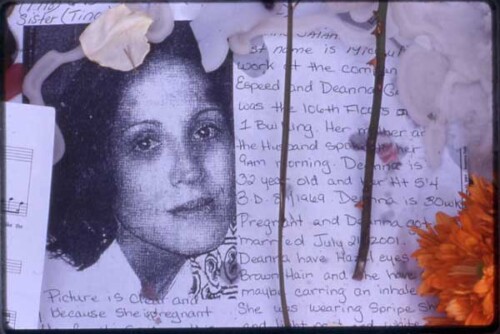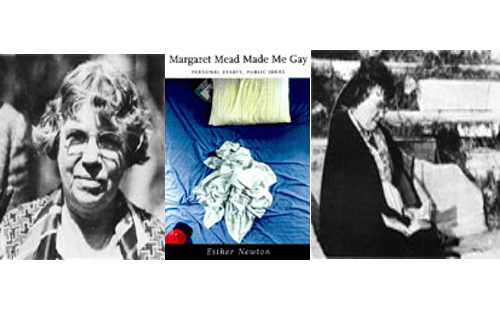Open Endings: Towards Hope
Throughout this special issue, we – an enlarged “we” of writers and readers – have been challenged to consider how and to what ends a given performance of feeling might move a public to action. But, what action exactly? As the essays here argue, and as recent history cautions, the “same” emotion – mourning, for example – may be mobilized to democratic and anti-democratic ends. So, what forms of performance and action, including theatrical performance and action, are appropriate to projects of social justice and democratic inclusion? Certainly, this special issue offers hopeful glimpses of theatre and performance as sites of public sentiments and as projects of social justice. But, the hopefulness many of the contributors evince about the possibility of connecting public sentiments to social justice does not blind us to the many ways emotion has been, and continues to be, harnessed to state violence. The essays gathered here are not the last word on any of these issues, but are offered as a spark to what we hope will be a more general project of exploring public sentiments, of bringing affect into discussions of social and cultural phenomena, and, perhaps, just perhaps, of forging alternative possibilities, for emotional as for public life.
Works Cited
Berlant, Lauren. The Queen of America Goes to Washington City. Durham: Duke UP, 1997.
Berlant, Lauren. “Poor Eliza.” No More Separate Spheres! Ed. Cathy N. Davidson.
Berlant, Lauren. “The Subject of True Feeling.” Feminist Consequences: Theory for the New Century. Ed. Elisabeth Bronfen and Misha Kavka. New York: Columbia UP, 2001. 126-60.
Berlant, Lauren and Lisa Duggan, eds. Our Monica, Ourselves. The Clinton Affair and the National Interest. New York: New York UP, 2001.
Caruth, Cathy, ed. Trauma: Explorations in Memory. Baltimore: Johns Hopkins UP, 1995.
Caruth, Cathy. Unclaimed Experience: Trauma, Narrative, and History. Baltimore: Johns Hopkins UP, 1996.
Christiansë, Yvette. “Passing Away: The Unspeakable (Losses) of Postapartheid South Africa.” Loss: The Politics of Mourning. Ed. David L. Eng and David Kazanjian. Berkeley, CA: U of California P, 2003. 372-95.
Crimp, Douglas. “Mourning and Militancy.” October 51 (Winter 1998): 3-18.
Cvetkovich, Ann. An Archive of Feelings: Trauma, Sexuality, and Lesbian Public Cultures. Durham: Duke UP, 2003.
Cvetkovich, Ann. “Trauma Ongoing.” Trauma at Home: After 9/11. Ed. Judith Greenberg. 60-66.
Davidson, Cathy N., ed. No More Separate Spheres! Durham: Duke UP, 2002.
Dolan, Jill. “Performance, Utopia, and the ‘Utopian Performative’.” Theatre Journal 53:3 (October 2001), 455-80.
Douglas, Ann. The Feminization of American Culture. New York: Knopf, 1977.
Eng, David L., and David Kazanjian. Loss: The Politics of Mourning. Berkeley, CA: U of California P, 2003.
Felman, Shoshana and Dori Laub. Testimony: Crises of Witnessing in Literature, Psychoanalysis, and History. New York: Routledge, 1992.
Fuss, Diana. Essentially Speaking: Feminism, Nature and Difference. New York: Routledge, 1989.
Gordon, Avery. Ghostly Matters: Haunting and the Sociological Imagination. Minneapolis: U of Minnesota P, 1997.
Greenberg, Judith, ed. Trauma at Home: After 9/11. Lincoln: U of Nebraska P, 2003.
Harper, Phillip Brian. “The Evidence of Felt Intuition: Minority Experience, Everyday Life, and Critical Speculative Knowledge.” GLQ: A Journal of Lesbian and Gay Studies 6:4 (2000), 641-57.
Hartman, Saidiya. Scenes of Subjection: Terror, Slavery, and Self-Making in Nineteenth-Century America. Oxford: Oxford UP, 1997.
Holland, Sharon P. Raising the Dead: Readings of Death and (Black) Subjectivity. Durham: Duke UP, 2000.
Jakobsen, Janet R. Working Alliances and the Politics of Difference: Diversity and Feminist Ethics. Bloomington, IN: Indiana UP, 1998.
Kazanjian, David, and Marc Nichanian, “Between Genocide and Catastrophe.” Loss: The Politics of Mourning. Ed. David L. Eng and David Kazanjian. Berkeley, CA: U of California P, 2003. 125-147.
Leys, Ruth. Trauma: A Genealogy. Chicago: U of Chicago P, 2000.
Morrison, Toni. “The Site of Memory.” Out There: Marginalization and Contemporary Culture. Ed. Russell Ferguson, Martha Gever, Trinh T. Minh-ha, Cornel West. Cambridge: MIT, 1990. 299-305.
Muñoz, José Esteban. Disidentifications: Queers of Color and the Performance of Politics. Minneapolis, MN: U of Minnesota P, 1999.
Muñoz, José Esteban. “Feeling Brown: Ethnicity and Affect in Ricardo Bracho’s The Sweetest Hangover (and Other STDs).” Theatre Journal 52 (2000), 67-79.
Nichanian, Marc. “Catastrophic Mourning.” Loss: The Politics of Mourning. Ed. David L. Eng and David Kazanjian. Berkeley, CA: U of California P, 2003. 99-124.
Pellegrini, Ann. Performance Anxieties, Staging Psychoanalysis, Staging Race. New York: Routledge, 1997.
Pellegrini, Ann. “Before a Live Audience.” Paper presented at Liveness: A Symposium, New York University (April 2000).
Pellegrini, Ann. “Staging Sexual Injury: How I Learned to Drive.” Critical Theory and Performance, second edition. Ed. Janelle G. Reinelt and Joseph R. Roach. Ann Arbor, MI: U of Michigan P, in press.
Phelan, Peggy. Mourning Sex: Performing Public Memories. New York: Routledge, 1997.
Romero, Lora. Home Fronts: Domesticity and Its Critics in the Antebellum United States. Durham: Duke UP, 1997.
Samuels, Shirley. The Culture of Sentiment: Race, Gender, and Sentimentality in Nineteenth-Century America. New York: Oxford UP, 1992.
Sánchez-Eppler, Karen. Touching Liberty: Abolition, Feminism, and the Politics of the Body. Berkeley: U of California P, 1993.
Sanders, Mark. “Ambiguities of Mourning: Law, Custom, and Testimony of Women before South Africa’s Truth and Reconciliation Commission.” Loss: The Politics of Mourning. Ed. David L. Eng and David Kazanjian. Berkeley, CA: U of California P, 2003. 77-98.
Sedgwick, Eve Kosovksy. “Paranoid Reading and Reparative Reading; or, You’re so Paranoid, You Probably Think This Introduction is About You.” Novel Gazing: Queer Readings in Fiction. Durham: Duke UP, 1997.
Seremetakis, C. Nadia, ed. The Senses Still: Perception and Memory as Material Culture in Modernity. Chicago: U of Chicago P, 1994.
Spillers, Hortense. “Mama’s Baby, Papa’s Maybe: An American Grammar Book.” Diacritics 17 (Summer 1987), 65-81.
Spivak, Gayatri Chakravorty. “Can the Subaltern Speak?: Speculations on Widow Sacrifice,” Wedge 7/8 (Winter/Spring 1985): 120-130.
Stewart, Kathleen. The Private Life of Public Culture. Unpublished manuscript.
Tompkins, Jane. Sensational Designs: The Cultural Work of American Fiction, 1790-1860. New York: Oxford UP, 1985.
Williams, Linda. Playing the Race Card: Melodramas of Black and White from Uncle Tom to O.J. Simpson. Princeton: Princeton UP, 2001.
Williams, Patricia. The Alchemy of Race and Rights: Diary of a Law Professor. Cambridge: Harvard UP, 1991.
Young, Allan. The Harmony of Illusions: Inventing Post-Traumatic Stress Disorder. Princeton: Princeton UP, 1995.




